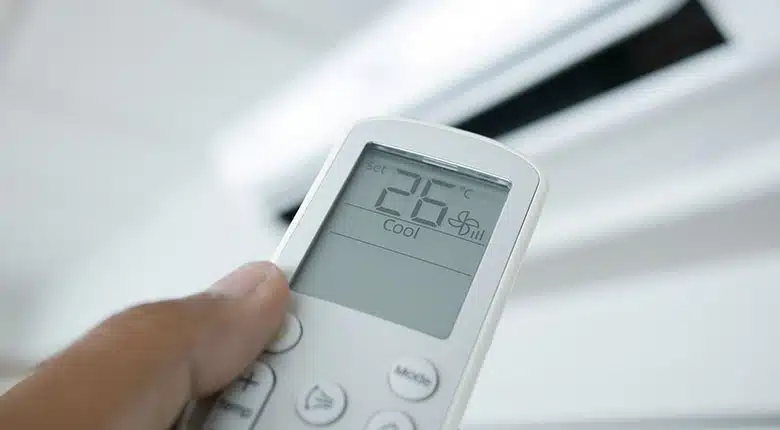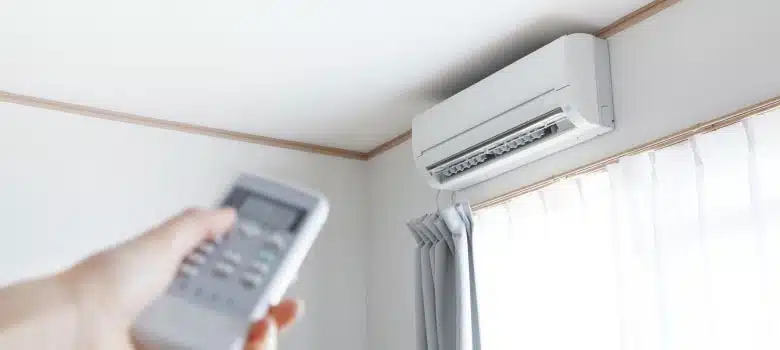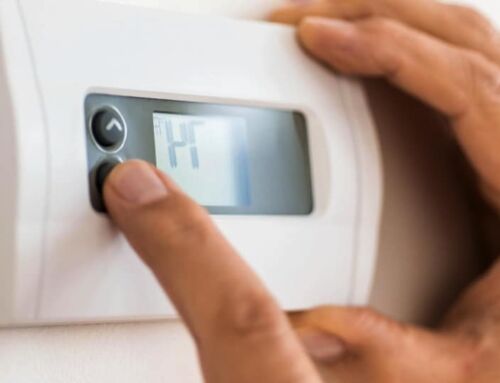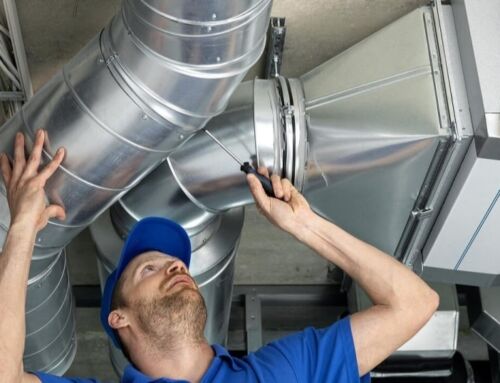When Sydney summer is in full swing and the mercury starts to rise, there are few things more relaxing than the respite of cool, refreshing AC. And when your AC unit breaks, it can be brutally uncomfortable – and even dangerous.
The good news?
There’s a lot that you can do to keep your air conditioner working exactly as it should, even when temperatures begin to increase. Here’s everything you need to know about keeping your A/C in tip top shape this summer.
How to prepare your home for warmer weather
First thing first: if you know that a heat wave is on the way, you should check your home and do a few basic preventative things to make sure that it’s ready for warmer temperatures.
First thing first: if you know that a heat wave is on the way, you should check your home and do a few basic preventative things to make sure that it’s ready for warmer temperatures.
Specifically, we recommend that you:
- Inspect your weather stripping. Are there any gaps in your stripping, loose hinges, or failed insulation? You’ll want to resolve these problems before temperatures begin to rise if you want to keep the heat out.
- Get ready to spend some time outside. In the warmer months, it can often be refreshing to spend some time outdoors. Make sure that your patio and backyard are ready when you are.
- Check your attic. In the winter, animals might find their way into your attic in order to keep warm. You might also face weather-related damage or leaks that have gone unchecked. All of this can lead to heat-related difficulties as the temperatures rise, so you’ll want to check and be proactive about resolving these problems.
Get a home warranty. If you don’t already have one, the changing seasons could be a great time to get a home warranty. That way, if you do face problems like a broken AC unit, you’ll be protected to resolve them. Specifically, we recommend that you:
- Inspect your weather stripping. Are there any gaps in your stripping, loose hinges, or failed insulation? You’ll want to resolve these problems before temperatures begin to rise if you want to keep the heat out.
- Get ready to spend some time outside. In the warmer months, it can often be refreshing to spend some time outdoors. Make sure that your patio and backyard are ready when you are.
- Check your attic. In the winter, animals might find their way into your attic in order to keep warm. You might also face weather-related damage or leaks that have gone unchecked. All of this can lead to heat-related difficulties as the temperatures rise, so you’ll want to check and be proactive about resolving these problems.
Get a home warranty. If you don’t already have one, the changing seasons could be a great time to get a home warranty. That way, if you do face problems like a broken AC unit, you’ll be protected to resolve them.
8 steps to keep your air conditioner working smarter (not harder) in warmer weather
There are many steps that you can follow to keep your air conditioner working and keep your energy bills under control. Read on for 8 tips we’ve collected after a decade keeping our Sydney clients cool and comfortable.
Step #1 – Maintain a reasonable temperature inside
Your AC unit will not work faster or more effectively if you crank it up to the lowest possible temperature. Instead, all you’ll be doing is:
- Straining your system
- Making it run longer than it should
- Wasting energy (that you’ll pay for)
- Spending unnecessary money
These problems will only be compounded if you’re facing a major heat wave. That’s why we recommend that, instead, you set your unit to the desired temperature you’re looking for – not lower.
Step #2 – Make sure that your vents are open
This one may seem like a no-brainer, but people often fail to check their vents when they turn on their AC. As a result, they may not notice when a vent is closed or pointed in the wrong direction.
As the temperatures rise, then, we recommend that you take a walk around your home and make sure that your vents are open and pointed to the right spot. This can save you more money – and make your unit more efficient – than you realise.
Need help with your A/C system? Learn about our affordable servicing options
Step #3 – Check your home’s insulation
If you don’t have time to do a pre-check as we recommended, or you simply notice that your house isn’t cooling as it should, you should take a look around and check for leaky ductwork or poor insulation. Such concerns can be totally sabotaging your cool air dreams.
Step #4 – Change your filters
Similarly, an old and clogged filter can obstruct airflow, expose you and your loved ones to dust and allergens, cost more money, and waste energy. Put simply, without the right air con maintenance, you’ll put an unnecessary strain on your AC unit
Make sure, then, that you start the warmer seasons by changing your filter and installing a clean, fresh one as soon as possible.
CONSUMER GUIDE: How to Clean Your A/C Unit Filters
Step #5 – Make sure your A/C unit is clean
In the same vein, physical obstructions or dirt and grime on your outside unit can obstruct airflow or prevent your unit from working as it should. That’s why we recommend that you take a look at your outside unit and:
- Make sure that key components, like coils, are clean
- Remove any accumulated debris like dirt, grime, hair, grass, and leaves
If you’re not sure what to look for, you can also schedule a maintenance professional to come to take a look for you.
Step #6 – Close your window coverings to prevent heat coming inside
Next, there are a few things you can do to keep the cool air in and the hot air out. At the top of this list? Make sure your blinds and curtains are closed during the day, particularly in rooms that you’re not actively using.
After all, having the Sydney sun streaming into your home is a surefire way of heating it up, and keep your air conditioner working while you have everything open will likely overburden your system.
Step #7 – Cook outdoors to reduce the temperature inside
OK, this isn’t *technically* a suggestion about air conditioners, but running a hot oven or a stovetop can undo a lot of your work and heat up your home from the inside out. Consider, then, throwing dinner on the BBQ outside or ordering in if you want to keep the temperature down.
Step #8 – Turn on the fan to get air moving
Finally, remember that you don’t have to rely completely on your AC unit to keep things cool. Instead, run some fans – like a box fan or your ceiling fan – to help maximise circulation and keep the temperature down.
What can you do to avoid an air conditioning meltdown?
In the big picture, it’s important to remember that regular maintenance is key to keeping your system running optimally and avoiding a meltdown. Make sure, then, that you schedule professional yearly maintenance to make sure that a problem is dragging on unnoticed.
Now you can stay cool as the temperatures rise
If you have any questions about your existing unit, or you’d like to schedule some routine maintenance, feel free to reach out to us directly on 02 8283 1105. You can also fill out the form here and we will get back to you as soon as possible.








Leave A Comment